20 Books Published by City Lights Publishers on AALBC — Book Cover Collage
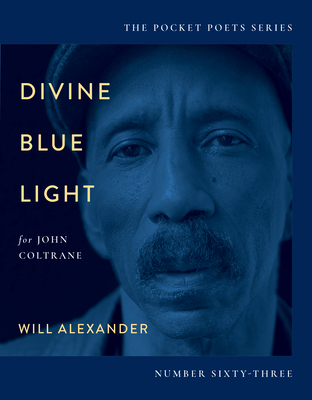 Divine Blue Light: for John Coltrane
Divine Blue Light: for John Coltrane
by Will AlexanderCity Lights Publishers (Nov 15, 2022)
Read Detailed Book Description
Pocket Poets Series No. 63
From Will Alexander, a finalist for the 2022 Pulitzer Prize in Poetry, a new collection of poems from the intersection between surrealism and afro-futurism, where C saire meets Sun Ra. Divine Blue Light further affirms Alexander’s status as one of the most unique and innovative voices in contemporary poetry.
“Since the 1980s, the Los Angeles-based Alexander has mixed politics with mesmeric, oracular lines.“—The New York Times
Against the ruins of a contemporary globalist discourse, which he denounces as a “lingual theocracy of super-imposed rationality,” Will Alexander’s poems constitute an alternative cartography that draws upon omnivorous reading—in subjects from biology to astronomy to history to philosophy—amalgamating their diverse vocabularies into an impossible instrument only he can play. Divine Blue Light is anchored by three major works: the opening "Condoned to Disappearance," a meditation on the heteronymic exploits of Portuguese modernist Fernando Pessoa; the closing "Imprecation as Mirage," a poem channeling an Indonesian man; and the title poem, an anthemic ode to the jazz saxophonist John Coltrane. Other key pieces include "Accessing Gertrude Bell," a critique of one of the designers of the modern state of Iraq; "Deficits: Cha m Soutine & Joan Mir ," in homage to two Jewish artists forced to flee the Nazi invasion of France; and "According to Stellar Scale," a compact lyric that traveled to space with astronaut Sian Proctor. The newest installment in our Pocket Poets Series, Divine Blue Light confirms Alexander’s status among the foremost surrealists writing in English today.
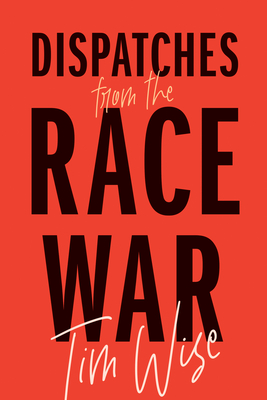 Dispatches from the Race War
Dispatches from the Race War
by Tim WiseCity Lights Publishers (Dec 01, 2020)
Read Detailed Book Description
Essays on racial flashpoints, white denial, violence, and the manipulation of fear in America today.
"Drawing on events from the killing of Trayvon Martin to the Black Lives Matter protests last summer, Wise calls to account his fellow white citizens and exhorts them to combat racist power structures."—The New York Times
"What Tim Wise has brilliantly done is to challenge white folks’ truth to see that they have a responsibility to do more than sit back and watch, but to recognize their own role in co-creating a fair, inclusive, truly democratic society."—Michelle Alexander, author of The New Jim Crow
"Tim Wise’s new book gives us the tools we need to reach people whose understanding of our country is white instead of right. And without pissing them off!"—James W. Loewen, author, Lies My Teacher Told Me
"Tim Wise’s latest is more urgent than ever. "—Heather Ann Thompson, Pulitzer Prize-winning author of Blood in the Water: The Attica Prison Uprising of 1971 and its Legacy
"A white social justice advocate clearly shows how racism is America’s core crisis. A trenchant assessment of our nation’s ills."—*Kirkus Reviews, Starred Review
" [Dispatches from the Race War] is a bracing call to action in a moment of social unrest."—Publishers Weekly
"Dispatches from the Race War exhorts white Americans to join the struggle for a fairer society."—Chapter 16
In this collection of essays, renowned social-justice advocate Tim Wise confronts racism in contemporary America. Seen through the lens of major flashpoints during the Obama and Trump years, Dispatches from the Race War faces the consequences of white supremacy in all its forms. This includes a discussion of the bigoted undertones of the Tea Party’s backlash, the killing of Trayvon Martin, current day anti-immigrant hysteria, the rise of openly avowed white nationalism, the violent policing of African Americans, and more.
Wise devotes a substantial portion of the book to explore the racial ramifications of COVID-19, and the widespread protests which followed the police murder of George Floyd.
Concise, accessible chapters, most written in first-person, offer an excellent source for those engaged in the anti-racism struggle. Tim Wise’s proactive approach asks white allies to contend with—and take responsibility for—their own role in perpetuating racism against Blacks and people of color.
Dispatches from the Race War reminds us that the story of our country is the history of racial conflict, and that our future may depend on how—or if—we can resolve it. "To accept racism is quintessentially American," writes Wise, "to rebel against it is human. Be human."
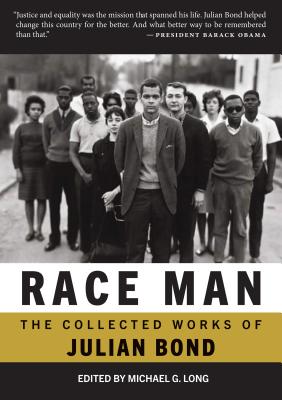 Race Man: Selected Works, 1960-2015
Race Man: Selected Works, 1960-2015
by Julian BondCity Lights Publishers (Jan 21, 2020)
Read Detailed Book Description
An inspiring, historic collection of writings from one of America’s most important civil rights leaders.
"Justice and equality was the mission that spanned his life. Julian Bond helped change this country for the better. And what better way to be remembered than that."—President Barack Obama
No one in the United States did more to advance the legacy of Martin Luther King Jr. than Julian Bond. Race Man—a collection of his speeches, articles, interviews, and letters—constitutes an unrivaled history of the life and times of one of America’s most trusted freedom fighters, offering unfiltered access to his prophetic voice on a wide variety of social issues, including police brutality, abortion, and same-sex marriage.
A man who broke race barriers and set precedents throughout his life in politics; co-founder of the Southern Poverty Law Center and long-time chair of the NAACP; Julian Bond was a leader and a visionary who built bridges between the black civil rights movement and other freedom movements—especially for LGBTQ and women’s rights. As we enter the third decade of the twenty-first century, there is no better time to return to Bond’s works and words, many of them published here for the first time.
"Endlessly grateful for this collection of work that shows the expansive nature of Julian Bond’s ideas of black liberation, and how those ideas are woven into the fabric of both resistance and uplift. Race Man is the map of a journey that was not only struggle and not only triumph. It is revitalizing, now, to have this to reach for as a reminder that our fight was present long before this present moment, and will live on well beyond it. A reminder that in our taking to these struggles, we must care for the most marginalized among us. What a generous text, for how it injects history into our purpose."—Hanif Abdurraqib, author of They Can’t Kill Us Until They Kill Us: Essays
"Race Man is the essential collection of Julian Bond’s wisdom—and required reading for the organizers and leaders who follow in his footsteps today."—Marian Wright Edelman, President Emerita, Children’s Defense Fund
"Julian Bond articulated, and modeled through his life of service, an idea of Black liberation that was expansive, principled, and pioneering. Race Man: The Collected Works of Julian Bond, 1960-2015 is a staggering collection that offers a genealogy of Bond’s freedom-oriented politics and soul work as captured in his written words. Race Man is a book that looks back and speaks forward. It is a timely example of what movement building can look like when servant leaders refuse to leave the most vulnerable out of their visions for Black freedom. We need that reminder, like never before, today."—Darnell L. Moore, author of No Ashes in the Fire: Coming of Age Black & Free in America
"Julian Bond’s Race Man anthology offers a uniquely perceptive and cogent overview of the African-American freedom struggle during its heyday in the 1960s and the perilous decades that have followed."—Clayborne Carson, Director, The Martin Luther King Jr Research and Education Institute, Stanford University
"The fight for civil rights has had many heroes, but, as these pages make clear, few have loomed as large as Julian Bond. Future generations will know Julian Bond as a warrior for good who helped conquer hate in the name of love. More importantly, they will live in a world that is far more just and far more equal because of him."—Chad Griffin, former President of the Human Rights Campaign
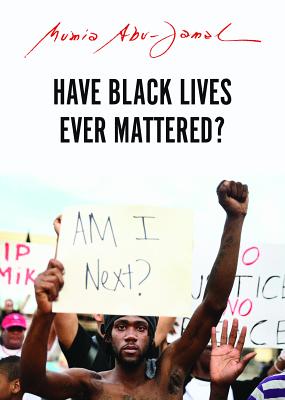 Have Black Lives Ever Mattered? (City Lights Open Media)
Have Black Lives Ever Mattered? (City Lights Open Media)
by Mumia Abu-JamalCity Lights Publishers (Jul 04, 2017)
Read Detailed Book Description
"A must-read for anyone interested in social justice and inequalities, social movements, the criminal justice system, and African American history. An excellent companion to Michelle Alexander’s The New Jim Crow and Ava DuVernay’s documentary 13th."―Library Journal, Starred review
"I was fortunate to grow up in a community in which it was apparent that our lives mattered. This memory is the antidote to the despair that seizes one of my generation when we hear the words ’Black Lives Matter.’ We want to shout: Of course they do! To you, especially. In this brilliant, painful, factual and useful book, we see to whom our lives have not mattered: the profit driven Euro-Americans who enslaved and worked our ancestors to death within a few years, then murdered them and bought replacements. Many of these ancestors are buried beneath Wall Street. Mumia Abu-Jamal’s painstaking courage, truth-telling, and disinterest in avoiding the reality of American racial life is, as always, honorable."—Alice Walker
"Prophet, critic, historian, witness … Mumia Abu-Jamal is one of the most insightful and consequential intellectuals of our era. These razor sharp reflections on racialized state violence in America are the fire and the memory our movements need right now."—Robin D. G. Kelley, author of Freedom Dreams: The Black Radical Imagination
"Mumia Abu Jamal’s clarion call for justice and defiance of state oppression has never dimmed, despite his decades of being shackled and caged. He is one of our nation’s most valiant revolutionaries and courageous intellectuals."—Chris Hedges, Pulitzer-prize winning journalist and author of Wages of Rebellion: The Moral Imperative of Revolt
"This collection of short meditations, written from a prison cell, captures the past two decades of police violence that gave rise to Black Lives Matter while digging deeply into the history of the United States. This is the book we need right now to find our bearings in the chaos."
—Roxanne Dunbar-Ortiz, author of An Indigenous Peoples’ History of the United States
In December 1981, Mumia Abu-Jamal was shot and beaten into unconsciousness by Philadelphia police. He awoke to find himself shackled to a hospital bed, accused of killing a cop. He was convicted and sentenced to death in a trial that Amnesty International has denounced as failing to meet the minimum standards of judicial fairness.
In Have Black Lives Ever Mattered?, Mumia gives voice to the many people of color who have fallen to police bullets or racist abuse, and offers the post-Ferguson generation advice on how to address police abuse in the United States. This collection of his radio commentaries on the topic features an in-depth essay written especially for this book to examine the history of policing in America, with its origins in the white slave patrols of the antebellum South and an explicit mission to terrorize the country’s black population. Applying a personal, historical, and political lens, Mumia provides a righteously angry and calmly principled radical black perspective on how racist violence is tearing our country apart and what must be done to turn things around.
Mumia Abu-Jamal is author of many books, including Death Blossoms, Live from Death Row, All Things Censored, Writing on the Wall, and Jailhouse Lawyers.
"[Mumia’s] writings are a wake-up call. He is a voice from our prophetic tradition, speaking to us here, now, lovingly, urgently."—Cornel West
"He allows us to reflect upon the fact that transformational possibilities often emerge where we least expect them."—Angela Y. Davis
"These writings date from the late 1990s and often show prescience on the part of the author, who was writing well before the Black Lives Matter movement that ’when the system kills Blacks, there is no outrage, for it has been normalized by centuries of white enslavement, terrorism, and injustice. Such violence is simply the accepted way of how things are.’ Also included is a series of articles on the killing of Trayvon Martin, accurately anticipating the acquittal of the white man who shot him, and another series on Ferguson and its aftermath—how ’Ferguson may prove a wake-up call that Black lives matter. A call for youth to build social, radical, revolutionary movements for change.’ The last piece is the longest, a pamphlet on how to build such a movement with a historical perspective on why this is necessary."—Kirkus Reviews
"While the author does reflect on the widely reported cases of police violence against African Americans, as well as on the role of the media in determining what gets attention, the strength of the book rests in the essays that draw attention to lesser-known victims of police violence, particularly women of color whose stories never reached the mainstream media. Over the course of nearly four decades in prison, Abu-Jamal … has become an astute student of the justice system as well as a particularly cogent opponent of the death penalty.”—Publishers Weekly
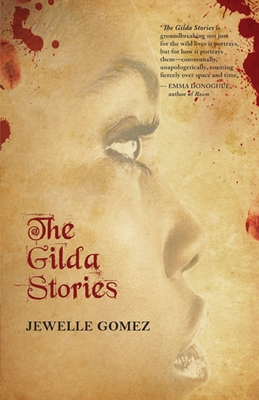 The Gilda Stories (Anniversary, Expanded)
The Gilda Stories (Anniversary, Expanded)
by Jewelle GomezCity Lights Publishers (Mar 29, 2016)
Read Detailed Book Description
The Gilda Stories is groundbreaking not just for the wild lives it portrays, but for how it portrays them—communally, unapologetically, roaming fiercely over space and time.—Emma Donoghue, author of Room
Jewelle Gomez sees right into the heart. This is a book to give to those you want most to find their own strength.—Dorothy Allison
This remarkable novel begins in 1850s Louisiana, where Gilda escapes slavery and learns about freedom while working in a brothel. After being initiated into eternal life as one who shares the blood by two women there, Gilda spends the next two hundred years searching for a place to call home. An instant lesbian classic when it was first published in 1991, The Gilda Stories has endured as an auspiciously prescient book in its explorations of blackness, radical ecology, re-definitions of family, and yes, the erotic potential of the vampire story.
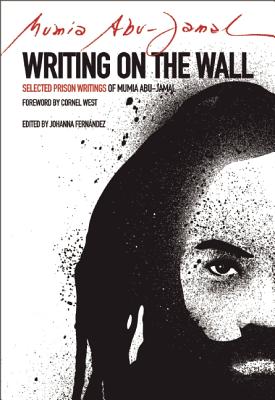 Writing on the Wall: Selected Prison Writings of Mumia Abu-Jamal (City Lights Open Media)
Writing on the Wall: Selected Prison Writings of Mumia Abu-Jamal (City Lights Open Media)
by Mumia Abu-JamalCity Lights Publishers (Jun 30, 2015)
Read Detailed Book Description
"Revolutionary love, revolutionary memory and revolutionary analysis are at work in every page written by Mumia Abu-Jamal … His writings are a wake-up call. He is a voice from our prophetic tradition, speaking to us here, now, lovingly, urgently. Black man, old-school jazz man, freedom fighter, revolutionary—his presence, his voice, his words are the writing on the wall."—Cornel West, from the forewordFrom the first slave writings to contemporary hip hop, the canon of African American literature offers a powerful counter-narrative to dominant notions of American culture, history and politics. Resonant with voices of prophecy and resistance, the African American literary tradition runs deep with emancipatory currents that have had an indelible impact on the United States and the world. Mumia Abu-Jamal has been one of our most important contributors to this canon for decades, writing from the confines of the U.S. prison system to give voice to those most silenced by chronic racism, impoverishment and injustice.Writing on the Wall is a selection of more than 100 previously unpublished essays that deliver Mumia Abu-Jamal’s essential perspectives on community, politics, power, and the possibilities of social change in the United States. From Rosa Parks to Edward Snowden, from the Trail of Tears to Ferguson, Missouri, Abu-Jamal addresses a sweeping range of contemporary and historical issues. Written mostly during his years of solitary confinement on Death Row, these essays are a testament to Abu-Jamal’s often prescient insight, and his revolutionary perspective brims with hope, encouragement and profound faith in the possibility of redemption."Greatness meets us in this book, and not just in Mumia’s personal courage and character. It’s in the writing. This is art with political power, challenging institutional injustice in the U.S. while catalyzing our understanding, memory and solidarities for liberation and love. Writing on the Wall can set the nation aflame—yes, for creating new possible worlds."—Mark Lewis Taylor, Professor of Theology and Culture, Princeton Theological SeminaryMumia Abu-Jamal is an award-winning journalist and author of two best-selling books, Live From Death Row and Death Blossoms.Johanna Fernández is a Fulbright Scholar and Professor of History at Baruch College in New York City.Cornel West is a scholar, philosopher, activist and author of over a dozen books including his bestseller, Race Matters. He appears frequently in the media, and has appeared on Real Time with Bill Maher, The Colbert Report, CNN and C-Span as well as Tavis Smiley.
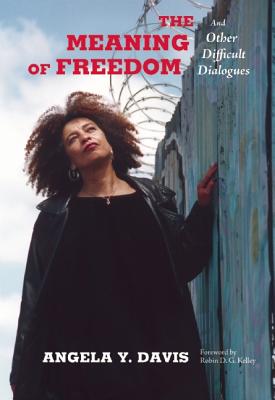 The Meaning of Freedom: And Other Difficult Dialogues
The Meaning of Freedom: And Other Difficult Dialogues
by Angela DavisCity Lights Publishers (Aug 14, 2012)
Read Detailed Book Description
What is the meaning of freedom? Angela Y. Davis’ life and work have been dedicated to examining this fundamental question and to ending all forms of oppression that deny people their political, cultural, and sexual freedom. In this collection of twelve searing, previously unpublished speeches, Davis confronts the interconnected issues of power, race, gender, class, incarceration, conservatism, and the ongoing need for social change in the United States. With her characteristic brilliance, historical insight, and penetrating analysis, Davis addresses examples of institutional injustice and explores the radical notion of freedom as a collective striving for real democracy - not something granted or guaranteed through laws, proclamations, or policies, but something that grows from a participatory social process that demands new ways of thinking and being. "The speeches gathered together here are timely and timeless," writes Robin D.G. Kelley in the foreword, "they embody Angela Davis’ uniquely radical vision of the society we need to build, and the path to get there."The Meaning of Freedom articulates a bold vision of the society we need to build and the path to get there. This is her only book of speeches."Davis’ arguments for justice are formidable… . The power of her historical insights and the sweetness of her dream cannot be denied."—The New York Times"One of America’s last truly fearless public intellectuals." —Cynthia McKinney, former US Congresswoman"Angela Davis offers a cartography of engagement in oppositional social movements and unwavering commitment to justice." —Chandra Talpade Mohanty, Women’s Studies, Hamilton College"Angela Davis deserves credit, not just for the dignity and courage with which she has lived her life, but also for raising important critiques of a for-profit penitentiary system decades before those arguments gained purchase in the mainstream." —Thomas Chatterton Williams, SFGate"Angela Davis’s revolutionary spirit is still strong. Still with us, thank goodness!"
—Virginian-Pilot"Long before ’race/gender’ became the obligatory injunction it is now, Angela Davis was developing an analytical framework that brought all of these factors into play. For readers who only see Angela Davis as a public icon … meet the real Angela Davis: perhaps the leading public intellectual of our era." —Robin D. G. Kelley author of Thelonious Monk: The Life and Times of an American Original"There was a time in America when to call a person an ’abolitionist’ was the ultimate epithet. It evoked scorn in the North and outrage in the South. Yet they were the harbingers of things to come. They were on the right side of history. Prof. Angela Y. Davis stands in that proud, radical tradition." —Mumia Abu-Jamal, author of Jailhouse Lawyers: Prisoners Defending Prisoners v. the U.S.A. "Behold the heart and mind of Angela Davis, open, relentless, and on time!" —June Jordan"Political activist, scholar, and author Angela Davis confronts the interconnected issues of power, race, gender, class, incarceration, conservatism, and the ongoing need for social change in the U.S. in her book, The Meaning of Freedom: And Other Difficult Dialogues." —Travis Smiley RadioAngela Y. Davis is professor emerita at the University of California and author of eight books. She is a much sought after public speaker and an internationally known advocate for social justice.Robin D.G. Kelley is the author of numerous books and a professor at the University of Southern California.
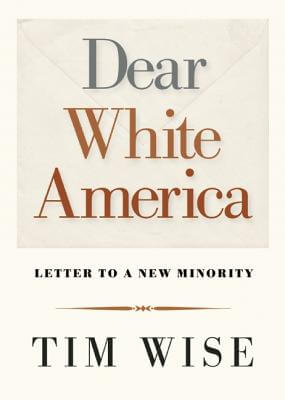 Dear White America: Letter To A New Minority (City Lights Open Media)
Dear White America: Letter To A New Minority (City Lights Open Media)
by Tim WiseCity Lights Publishers (Jan 10, 2012)
Read Detailed Book Description
"Sparing neither family nor self … he considers how the deck has always been stacked in his and other white people’s favor… . His candor is invigorating."Publishers Weekly"One of the most brilliant, articulate and courageous critics of white privilege in the nation."Michael Eric Dyson
White Americans have long been comfortable in the assumption that they are the cultural norm. Now that notion is being challenged, as white people wrestle with what it means to be part of a fast-changing, truly multicultural nation. Facing chronic economic insecurity, a popular culture that reflects the nation’s diverse cultural reality, a future in which they will no longer constitute the majority of the population, and with a black president in the White House, whites are growing anxious.
This anxiety has helped to create the Tea Party movement, with its call to "take our country back." By means of a racialized nostalgia for a mythological past, the Right is enlisting fearful whites into its campaign for reactionary social and economic policies.
In urgent response, Tim Wise has penned his most pointed and provocative work to date. Employing the form of direct personal address, he points a finger at whites’ race-based self-delusion, explaining how such an agenda will only do harm to the nation’s people, including most whites. In no uncertain terms, he argues that the hope for survival of American democracy lies in the embrace of our multicultural past, present and future.
Tim Wise is one of the most prominent antiracist essayists, educators, and activists in the United States. He is regularly interviewed by A-list media, including CNN, C-SPAN, The Tavis Smiley Show, The Tom Joyner Morning Show, Michael Eric Dyson’s radio program, and many more. His most recent books include Colorblind and Between Barack and a Hard Place.
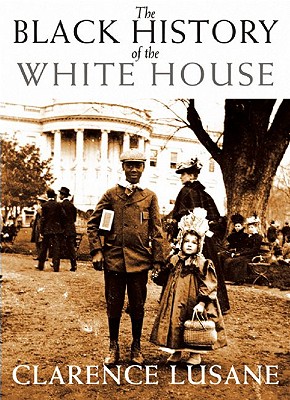 The Black History of the White House
The Black History of the White House
by Clarence LusaneCity Lights Publishers (Jan 01, 2011)
Read Detailed Book Description
The Black History of the White House presents the untold history, racial politics, and shifting significance of the White House as experienced by African Americans, from the generations of enslaved people who helped to build it or were forced to work there to its first black First Family, the Obamas.
Clarence Lusane juxtaposes significant events in White House history with the ongoing struggle for democratic, civil, and human rights by black Americans and demonstrates that only during crises have presidents used their authority to advance racial justice. He describes how in 1901 the building was officially named the “White House” amidst a furious backlash against President Roosevelt for inviting Booker T. Washington to dinner, and how that same year that saw the consolidation of white power with the departure of the last black Congressmember elected after the Civil War. Lusane explores how, from its construction in 1792 to its becoming the home of the first black president, the White House has been a prism through which to view the progress and struggles of black Americans seeking full citizenship and justice.
“Clarence Lusane is one of America’s most thoughtful and critical thinkers on issues of race, class, and power.”—Manning Marable
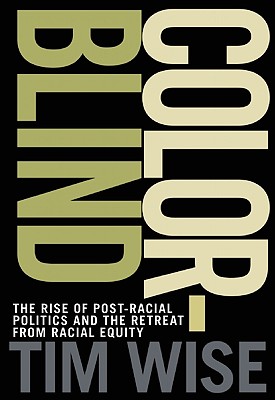 Colorblind: The Rise Of Post-Racial Politics And The Retreat From Racial Equity (City Lights Open Media)
Colorblind: The Rise Of Post-Racial Politics And The Retreat From Racial Equity (City Lights Open Media)
by Tim WiseCity Lights Publishers (Jun 01, 2010)
Read Detailed Book Description
"It’s a great book. I highly, highly, highly recommend it." —Tavis Smiley
In this powerful follow-up to Between Barack and a Hard Place, Tim Wise argues against colorblindness” and for a deeper color-consciousness in both public and private practice. We can only begin to move toward authentic social and economic equity through what Wise calls "illuminated individualism"acknowledging the diverse identities that have shaped our perceptions, and the role that race continues to play in the maintenance of disparities between whites and people of color in the United States today. This is the first book to discuss the pitfalls of colorblindness” in the Obama era.
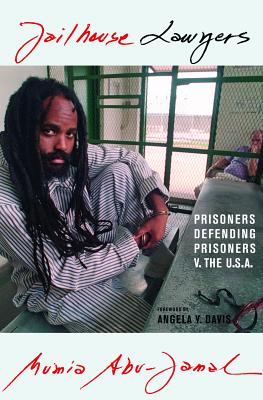 Jailhouse Lawyers: Prisoners Defending Prisoners v. the USA
Jailhouse Lawyers: Prisoners Defending Prisoners v. the USA
by Mumia Abu-JamalCity Lights Publishers (Mar 01, 2009)
Read Detailed Book Description
“Expert and well-reasoned commentary on the justice system… . His writings are dangerous.”—The Village VoiceIn Jailhouse Lawyers, award-winning journalist and death-row inmate Mumia Abu-Jamal presents the stories and reflections of fellow prisoners-turned-advocates who have learned to use the court system to represent other prisoners—many uneducated or illiterate—and, in some cases, to win their freedom. In Abu-Jamal’s words, “This is the story of law learned, not in the ivory towers of multi-billion-dollar endowed universities [but] in the bowels of the slave-ship, in the dank dungeons of America.”Includes an introduction by Angela Y. Davis.Mumia Abu-Jamal’s books include Live From Death Row and Death Blossoms.
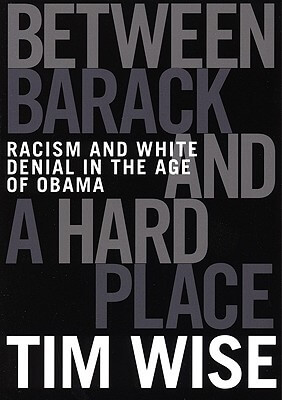 Between Barack And A Hard Place: Racism And White Denial In The Age Of Obama
Between Barack And A Hard Place: Racism And White Denial In The Age Of Obama
by Tim WiseCity Lights Publishers (Jan 01, 2009)
Read Detailed Book Description
Race is, and always has been, an explosive issue in the United States. In this timely new book, Tim Wise explores how Barack Obama’s emergence as a political force is taking the race debate to new levels. According to Wise, for many white people, Obama’s rise signifies the end of racism as a pervasive social force; they point to Obama not only as a validation of the American ideology that anyone can make it if they work hard, but also as an example of how institutional barriers against people of color have all but vanished. But is this true? And does a reinforced white belief in color-blind meritocracy potentially make it harder to address ongoing institutional racism? After all, in housing, employment, the justice system, and education, the evidence is clear: white privilege and discrimination against people of color are still operative and actively thwarting opportunities, despite the success of individuals like Obama.Is black success making it harder for whites to see the problem of racism, thereby further straining race relations, or will it challenge anti-black stereotypes to such an extent that racism will diminish and race relations improve? Will blacks in power continue to be seen as an “exception” in white eyes? Is Obama “acceptable” because he seems “different from most blacks,” who are still viewed too often as the dangerous and inferior “other”?Tim Wise is among the most prominent antiracist writers and activists in the US and has appeared on ABC’s 20/20 and MSNBC Live. His previous books include Speaking Treason Fluently and White Like Me.
 The Torturer’s Wife
The Torturer’s Wife
by Thomas GlaveCity Lights Publishers (Dec 01, 2008)
Read Detailed Book Description
“Glave is a gifted stylist … blessed with ambition, his own voice and an impressive willingness to dissect how individuals actually think and behave.”—The New York Times Book ReviewThomas Glave, known for his stylistic brio, expands and deepens his lyrical experimentation in stories that focus—explicitly and allegorically—on the horrors of despotic dictatorships, terror, anti-gay violence, the weight of memory, secret fetishes, erotic longing, desire, and intimacy.Thomas Glave is the author of Whose Song? and Other Stories, the essay collection Words to Our Now: Imagination and Dissent (winner of a 2005 Lambda Literary Award), and is editor of the anthology Our Caribbean:A Gathering of Lesbian and Gay Writing from the Antilles. He is the 2008-2009 Martin Luther King Jr. Visiting Professor in the Program in Writing and Humanistic Studies at the Massachusetts Institute of Technology.
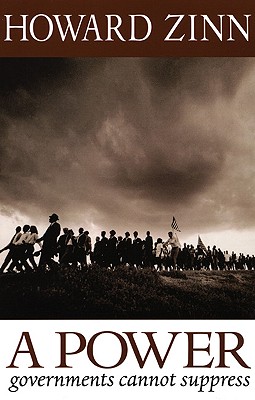 A Power Governments Cannot Suppress
A Power Governments Cannot Suppress
by Howard ZinnCity Lights Publishers (Dec 01, 2006)
Read Detailed Book Description
"Thank you, Howard Zinn. Thank you for telling us what none of our leaders are willing to: The truth. And you tell it with such brilliance, such humanity. It is a personal honor to be able to say I am a better citizen because of you."
— Michael Moore, director of the film Fahrenheit 9/11, and author of the New York Times bestseller, Stupid White Men …and Other Sorry Excuses for the State of the Nation!
"This strong, incisive book by Howard Zinn provides us with a penetrating critique of current U.S. policies and embraces the sweep of history. Zinn’s inspired voice sets him apart … which is why so many of us look to Howard as a modern-day Thoreau. As always with Zinn’s work, A Power Governments Cannot Suppress leaves us with the faith that citizens have what it takes to confront power and to reverse the dangerous and unjust acts of our government."
— Jonathan Kozol, author of The Shame of The Nation: The Restoration of Apartheid Schooling in America
"Find here the voice of the well-educated and honorable and capable and human United States of America, which might have existed if only absolute power had not corrupted its third-rate leaders so absolutely."
— Kurt Vonnegut, author of A Man Without a Country
"Howard Zinn is a unique voice of sanity, clarity and wisdom who reads history not only to understand the present but to shape the future. …Profoundly insightful… A Power Governments Cannot Suppress should be read by every American, over and over again."
— Michael Lerner, editor of Tikkun Magazine, author of The Left Hand of God: Taking Back our Country from the Religious Right
“This brilliant new book—like Howard Zinn’s presence, and his whole life, is the best possible antidote to political despair. Read it, and rejoin the struggle for a human world and a foreign policy that’s good for children.”
—Daniel Ellsberg released the Pentagon Papers in 1971 and is author of Secrets: A Memoir of Vietnam and the Pentagon Papers
A Power Governments Cannot Suppress, is a major new collection of essays on American history, class, immigration, justice, and ordinary citizens who have made a difference. Zinn addresses America’s current political/ethical crisis using lessons learned from our nation’s history. Zinn brings a profoundly human, yet uniquely American perspective to each subject he writes about, whether it’s the abolition of war, terrorism, the Founding Fathers, the Holocaust, defending the rights of immigrants, or personal liberties. Written in an accessible, personal tone, Zinn approaches the telling of U.S. history from an active, engaged point of view. "America’s future is linked to how we understand our past,” writes Zinn; "For this reason, writing about history, for me, is never a neutral act."
Zinn frames the book with an opening essay titled "If History is to be Creative," a reflection on the role and responsibility of the historian. "To think that history-writing must aim simply to recapitulate the failures that dominate the past," writes Zinn, "is to make historians collaborators in an endless cycle of defeat." "If history is to be creative, to anticipate a possible future without denying the past, it should, I believe, emphasize new possibilities by disclosing those hidden episodes of the past when, even if in brief flashes, people showed their ability to resist, to join together, and occasionally win. I am supposing, or perhaps only hoping, that our future may be found in the past’s fugitive moments of compassion rather than in its solid centuries of warfare."
Buzzing with stories and ideas, Zinn draws upon fascinating, little-known historical anecdotes spanning from the Declaration of Independence to the USA PATRIOT Act to comment on the most controversial issues facing us today: government dishonesty, how to respond to terrorism, the wars in Iraq and Afghanistan, the loss of our liberties, immigration, and the responsibility of the citizen to confront power for the common good.
Considered a "modern-day Thoreau" by Jonathon Kozol, Zinn’s inspired writings address the reader as an active participant in history making. "We live in a beautiful country,” writes Zinn, in the book’s opening chapter. “But people who have no respect for human life, freedom, or justice have taken it over. It is now up to all of us to take it back."
Featuring essays penned over an eight-year period, A Power Governments Cannot Suppress is Howard Zinn’s first writerly work in several years, an invaluable post-9/11-era addition to the themes that run through his bestselling classic, A People’s History Of the United States.
Howard Zinn is a veteran of World War II and author of many books and plays, including the milli
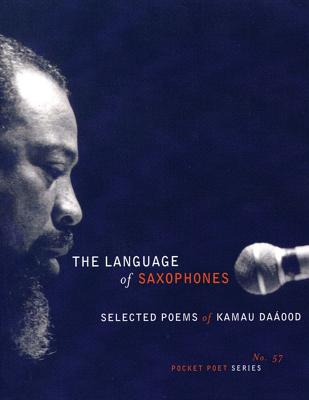 The Language of Saxophones : Selected Poems of Kamau Daáood
The Language of Saxophones : Selected Poems of Kamau Daáood
by Kamau Daa’oodCity Lights Publishers (Apr 01, 2005)
Read Detailed Book Description
A long-awaited collection from a pioneer of the spoken word movement, these poems soar and sway with the syncopation and melodies of jazz. Portraits, chronicles, incantations and invocations, drawn from a lifetime of prolific activity. From his early days in the Black Arts Movement and up to the present, Daaood has been a powerful artistic and social force, an inspired seer/seeker. Whether collaborating with renowned musicians, heading up a performance group or inspiring and nurturing new talent, he speaks to and from the urgency of his time. "Saxophones offers a good sample of the work that has made Daáood such a respected figure among black poets, and among all poets who take their role as bards and teachers straight, no irony. Early poems establish a voice as one that is at once fiery and philosophical, scattershot but continually looking for order and reason in a landscape usually devoid of it…" —The LA Weekly "Jazz at its core is cosmic, and Daáood taps into its unifying vision in his powerfully percussive, prayerful, firmly rooted yet soaring, direct and accessible poetry… In this slender but mighty retrospective volume covering four decades, he offers burning social critique…" —Booklist “A powerful collection, broken into sections ranging from 1970 through 2004, Daáood takes us on a dance with him, revisiting each era, sharing his insights. Vivid images come to mind as the poems are read, reflecting on his artistic nature. Woven like an intricate web, he chronicles his anger against racism and injustices, while at the same time, allows us to witness his influence on others. Like a sensuous dance, the poems go up and down, seemingly getting better as they progress, allowing the reader to hold onto a piece of time in the process.” —www.rawsistaz.com "There are prophets among us and Kamau Daáood is one of them. His poems are psalms. HIs language shimmers, raging against injustice and racism, yet held in tender balance. His images are irridescent and deep with river song. His art is an abiding love for the world. His genius is that he believes it. After you are blessed by this book, you too will believe." —Chris Abani, author of GraceLand and Dog Woman "Long before poetry slams became the literary equivalent of monster-truck rallies, City Lights Press was at the heart of San Francisco’s poetry renaissance, putting out volumes by Jack Kerouac, Allen Ginsberg and Anne Waldman - the true founders of the so-called spoken word movement. All of these writers appeared in the Pocket Poet series, which could fit in a jeans pocket and made a perfect companion for cross-country jaunts. The series survives, and the latest addition is Kamau Daaood’s The Language of Saxophones, a book so hip and full of soul even Miles Davis would have treated it with respect. —John Freeman, Milwaukee Journal Sentinel Kamau Daaood, performance poet and community arts activist, is the artistic director of Los Angeles’ World Stage Performance Gallery, which he co-founded with master drummer Billy Higgins. His work can be heard on his award-winning CD Leimert Park.
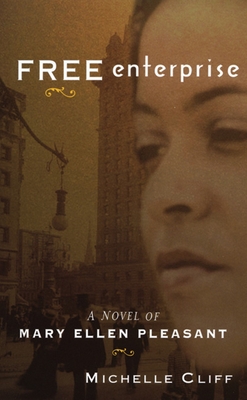 Free Enterprise: A Novel of Mary Ellen Pleasant
Free Enterprise: A Novel of Mary Ellen Pleasant
by Michelle CliffCity Lights Publishers (Sep 01, 2004)
Read Detailed Book Description
In 1858, two black women meet at a restaurant and begin to plot a revolution. Mary Ellen Pleasant owns a string of hotels in San Francisco that secretly double as havens for runaway slaves. Her comrade, Annie, is a young Jamaican who has given up her life of privilege to fight for the abolitionist cause. Together they join John Brown’s doomed enterprise and barely escape with their lives. With mesmerizing skill, Cliff weaves a multitude of voices into a gripping, poignant story of the struggle for liberation that began not long after the first slaves landed on America’s shores.
Cliff’s extraordinary novel loosely based on the life of Mary Ellen Pleasant and a Jamaican woman named Annie Christmas … The tale of Mary Ellen and Annie is told obliquely, through lyrical fragments, letters, and associative incidents, all part of Cliff’s effort to ’adjust the lens’ in her fiction, as she calls it, to ’bring the background into relief, blurring the more familiar foreground.’—Village Voice Literary Supplement
Free Enterprise is an angry, gaudy, multicultural storm of a historical novel … At the heart of this story are two African-American women, comrades of abolitionist John Brown … Michelle Cliff brings together a fabulous cast of outsiders…to retell New World history from the women warriors’ point of view.—Elle
An articulate writer with an alluring prose style, Cliff offers and absorbing tale of friendship, survival and courage … Cliff skillfully weaves oral testaments, letters, poems, and colorful narrative to tell stories of French, English and Spanish enslavers, and the African, Chinese, Indian and Hawaiian people they persecuted. With prismatic prose, she limns the portraits of her two protagonists—each with her own joys and troubles, who are bound by a common love for their people.—Publishers Weekly
Michelle Cliff thickly wraps legend, fantasy and imagination around the bones of history in this gracefully written account of two spirited Black women whose lives and letters cross from their beginnings as supporters of John Brown’s insurrection at Harper’s Ferry through the end of the 19th century and a return to a small island off the coast of Massachusetts. There is way in which Michelle Cliff captures the air and heat of a place and brings it fully to life. Whether it’s an August dinner party in post Civil War Boston or evening tales recounted at a Louisiana leper colony, or sailing on the Caribbean sea, Cliff makes us want to explore the tales of story tellers and the truths of her intriguing characters.—Devorah Major, author of Brown Glass Windows
Like almost all innovative novels, Free Enterprise explores the question, ’What does it mean to read a book?’ Michelle Cliff understands the power—and the danger—of the written word. In Free Enterprise, she invites all of us to escape from our own skins and to enter into the experiences of others. That’s the price we sometimes must pay for our own freedom.—Santa Rosa Press Democrat
Written with lyrical power, Free Enterprise is a novel whose beauty opens out from every level of its existence. Confident and visionary, its urgent social agenda—as relevant today as in the time of the setting—speaks with courage to the human struggle for justice and freedom. Bravo For Michelle Cliff.—Clarence Major, author of Such Was the Season
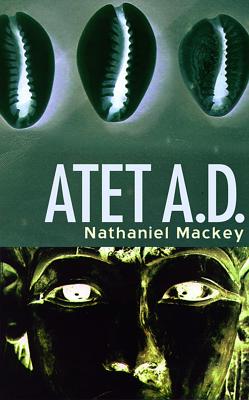 Atet A.D.
Atet A.D.
by Nathaniel MackeyCity Lights Publishers (Aug 01, 2001)
Read Detailed Book Description
Atet A.D. is the third volume of Nathaniel Mackey’s ongoing epistolary fiction, From a Broken Bottle Traces of Perfume Still Emanate. Like the first two volumes, Bedouin Hornbook and Djbot Baghostus’s Run, this work is written by the composer/multi-instrumentalist N., a founding member of a band formerly known as the Mystic Horn Society.The letters in Atet A.D. span a seven-month period beginning shortly after Thelonious Monk’s death and culminating in the band recording their first album on John Coltrane’s birthday. Rendered in N.’s distinctive mix of discursive registers, they chronicle and meditate upon, among other events, Penguin’s return from seclusion, N.’s recurring cowrie shell attacks, the band’s adoption of a new name, and their being beset, beginning with a gig in Seattle, by a new, perplexing twist in their expressive powers."As with all of Mackey’s prose fiction, his hermeneutic speculations are advanced as much by the power of puns as by syllogistic reasoning. For all the wordplay, Mackey manages to cover a lot of ground in this neo-novel, which is not so much about "characters" as it is about ideas and themes like gender equality, the survival of African customs and spiritual values in America, and the play of dreams within our waking realities. Most idiosyncratically, Mackey, with his nuanced knowledge of jazz, convinces the reader that music operates like a language, with all the power to convey, say, a specific feminist critique of male-centered jazz culture, or to acquire levels of symbolism that would make Dante wonder if he should have taken up sax." —Publishers Weekly "Atet A.D. is a fascinating work of poetic/musical fiction-storytelling that plays with, and is inspired by, language and the mystical concepts and connections that arise unbidden from the manipulation of metaphor and meaning, while simultaneously fueled by the sounds and energy of American jazz which Mackey views as a source of spiritual and sexual discipline and discovery" —Art Lange, PulseNathaniel Mackey, recipient of a 1993 Whiting Writers’ Award, is the author of School of Udhra and Whatsaid Serif, both also published by City Lights Publishers. He won the National Book Award for Poetry in 2006, was awarded the Ruth Lilly Poetry Prize in 2014, and won Yale’s Bollingen Prize for American Poetry in 2015. He teaches a poetry workshop at Duke University.
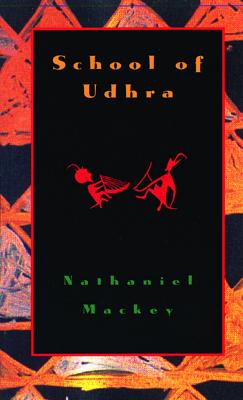 School of Udhra
School of Udhra
by Nathaniel MackeyCity Lights Publishers (Jan 01, 2001)
Read Detailed Book Description
School of Udhra takes its title from the Bedouin poetic tradition associated with the seventh-century Arab poet Djamil, the Udhrite school of poets who, when loving die.” Bedouin tradition, however, is only one of the strands of world revery these poems have recourse to. They obey a bedouin” impulse of their ownfugitive, moving on, nomadic. Ogo the fox, the Dogon avatar of singleness and unrest, runs throughout, crossing and recrossing divided ground, primal isolate, insistent within the book’s cross-cultural weave.The poems track variances of union and disunion- social, sexual, mystic, mythic- both formally and in their content. They return rhapsody to its root sense: stitching together. Threads ranging through ancient Egypt, shamanic Siberia, Rastafarian Jamaica, and elsewhere figure in, inflected by conjunctive and disjunctive cadences inspired by jazz, Gnaoua trance-chant, cante jando, and other musics."’Purgatorial stealth’ (as School of Udhra puts it), within a startling progression, I find, of imageries, becomes the poem’s enigmatic seductive, sometimes wavering, sliding traverse of a spiritual wilderness. I have no doubt that the book is a remarkable and daring testament that needs to be read and re-read for the unpredictable measure of involved enchantment it unfolds … A book of haunted pleasure." Wilson Harris, Palace of the Peacock"Nathaniel Mackey has said that in language we inherit the voices of the dead. In School of Udhra he transcribes immeasurable spaces of the dispossessed who call him runaway. This writing increasingly unleashes each skittish letter into the risk of syllabic stutter ’vatic scat’ stagger. How else ever re-trace or re-member the speaker of a ghost in sentences we step across. Words or segments of lines, stab, cut, rift, rend, relate, blaspheme, and bless." Susan Howe, My Emily DickinsonNathaniel Mackey, recipient of a 1993 Whiting Writers’ Award, is the author of Eroding Witness (1985), Whatsaid Serif (City Lights, 1998), Atet A.D. (City Lights, 2001), Bedouin Hornbook (1986), and Djbot Baghosus’s Run (1993), as well as Discrepant Engagement: Dissonance Cross-Culturality, and Experimental Writing (1993). He has taught at the University of California, Santa Cruz and Duke University.
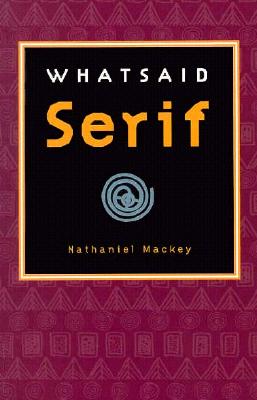 WHATSAID Serif
WHATSAID Serif
by Nathaniel MackeyCity Lights Publishers (Jan 01, 2001)
Read Detailed Book Description
Whatsaid Serif, Nathaniel Mackey’s third book of poems, is comprised of installments sixteen through thirty-five of Song of the Andoumboulou, an ongoing serial work whose first fifteen installments appear in Eroding Witness and School of Udhra, his two previous books. Named after a Dogon funeral song whose raspy tonalities prelude rebirth, Song of the Andoumboulou has from its inception tracked interweavings of lore and livid apprehension, advancing this weave as its own sort of rasp. These twenty new installments evoke the what-sayer of Kakapalo storying practice as a figure for the rough texture of such interweaving. Mackey has suggested that the Andoumboulou, a failed, earlier form of human being in Dogon cosmology, are a rough draft of human being,” that the Andoumboulou are in fact us; we’re the rough draft.” The song is of possibility, yet to be fulfilled, aspiration’s putative angel itself."Nathaniel Mackey’s poem is a brilliant renewal of and experiment with the language of our spiritual condition and a measure of what poetry gives in trust - ’heat’s/mean’ and the rush of language to bear it." Robin Blaser"Mackey’s raspy rebus-like cultural resurfacings are both beautiful to read and worthy of repeated efforts at comprehension." Publishers WeeklyNathaniel Mackey, recipient of a 1993 Whiting Writers’ Award, is the author of School of Udhra and Atet A.D., both also published by City Lights Publishers. He won the National Book Award for Poetry in 2006, was awarded the Ruth Lilly Poetry Prize in 2014, and won Yale’s Bollingen Prize for American Poetry in 2015. He teaches a poetry workshop at Duke University.
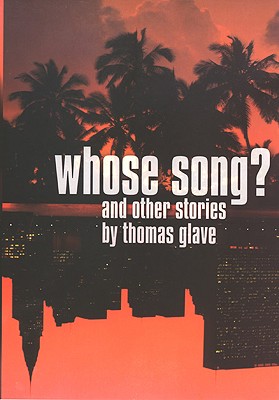 Whose Song?: And Other Stories
Whose Song?: And Other Stories
by Thomas GlaveCity Lights Publishers (Oct 01, 2000)
Read Detailed Book Description
Author Thomas Glave is known for his stylistic brio and courageous explorations into the heavily mined territories of race and sexuality. This searing collection of stories is a stunning debut of a writer the Village Voice has named "One to Watch."“Thomas Glave walks the path of such greats in American literature as Richard Wright and James Baldwin while forging new ground of his own. His voice is strong and his technique dazzling as he cuts to the bone of what it means to be black in America, white in America, gay in America, and human in the world at large. These stories span the globe of the human experience and the human heart. They are brutal in some places, tender in others, but always honestly told. A true talent of the 21st century." — Gloria Naylor"Thomas Glave has a strong talent and courage to take up the right to enter the inner selves of both black and white characters in his stories. This is a creative claim beyond ’authenticity’ determined by skin color. He also has that essential writer’s ear for the way different people speak within their cultures, and what their idiom gives away of their inhibitions and affirmations." —Nadine Gordimer"What a writer! What a book! Glave is a brilliant writer of startlingly fresh prose … His stories are intricate tapestries of life rendered through a triumphant act of the imagination." —Clarence Major"Remarkable stories by a gifted writer who explores the stresses, the split-minds, the implicit grandeurs, the subtleties, and the terrors of emotional desire and obsession." —Wilson Harris"[Glave’s] rare insight, boundless courage, and fierce imagination make these stories resound long after you turn the last page." —Village VoiceThomas Glave is the author of Whose Song? and Other Stories, the essay collection Words to Our Now: Imagination and Dissent (winner of a 2005 Lambda Literary Award), and is editor of the anthology Our Caribbean: A Gathering of Lesbian and Gay Writing from the Antilles (winner of a 2008 Lambda Literary Award).
